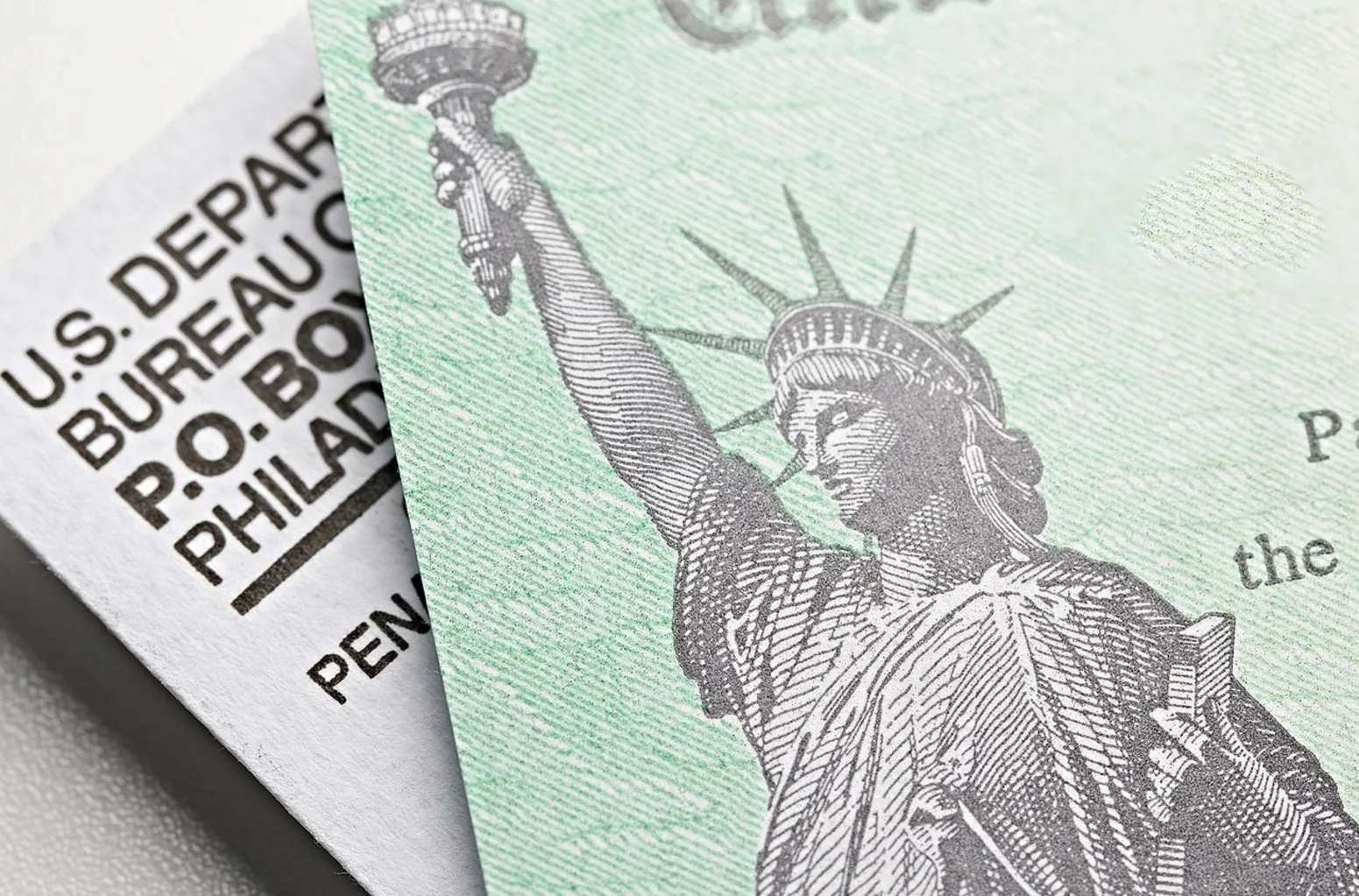
- Stimulus Check First Round
- Stimulus Check Second Round
- Stimulus Check Third Round
- Can I Get a Stimulus Check if I Didn’t File Taxes?
- Will I Get a Stimulus Check if I Owe Taxes for 2019?
- Recovery Rebate Tax Credit
- Why Have I Not Received My Stimulus Check?
This article was fact-checked and verified by Katherine Varraveto, CPA. However, this article does not constitute tax advice and was written for educational purposes. For actual tax advice please consult your own CPA.
If I owe taxes will I get a stimulus check? That is the big question on everyone’s mind right now.
2020 has definitely been a tough year financially for many people. Employment rose dramatically at the start of the pandemic and it has since leveled off somewhat.
When unemployment is down, the economy always suffers. Therefore, the U.S. government stepped in to help relieve some of the financial stress from its citizens and the economy by issuing stimulus checks as coronavirus tax relief.
The purpose of the stimulus check is to reenergize the economy. The government sends a stimulus check to a taxpayer in hopes that the taxpayer will spend it in a way that will boost the economy.
But for many, this becomes a stressful time, especially for those wondering whether they will receive or qualify for this financial relief since they owe back taxes or have other particular circumstances.
Stimulus Check First Round
The first stimulus check was a by-product of the CARES Act which went into effect March 27, 2020.
The CARES Act stated that those eligible would receive $1,200 per person, or portion there-of based on phase-out limitations, with an extra $500 per dependent under the age of 17 if your filing status was the following:
- Single – adjusted gross income under $99,000 with a phase-out above $75,000
- Head of Household – adjusted gross income is less than $136,500 with a phase-out above $112,500
- Married Filing Jointly – no children and adjusted gross income is below $198,000 with a phase-out above $150,000
This check arrived in April of 2020, if at least one spouse had a valid Social Security number and was a U.S. citizen or qualifying resident alien, either as a paper check, an EIP card that required activation, or as a direct deposit and was recorded on IRS Notice 1444-A.
Even those who don’t usually file taxes were eligible for the first check. This included railroad retirees, older adults, Social Security recipients including Social Security Disability Insurance, Supplemental Security Insurance recipients, and Veterans Affairs beneficiary.
Eligibility and payment amount were determined by the 2018 or 2019 tax return depending whether the 2019 return was filed before the first round of checks.
Stimulus Check Second Round
The second round of stimulus checks resulted from another economic relief bill that was passed at the end of last year.
This payment ended up being $600 per person plus $600 per dependent. This payment was issued late December 2020 and January 2021 and was recorded on IRS Notice 1444-B.
To be eligible for the second round check, or portion there-of based on phase-out limitations, the maximum income limit is as follows:
- Single – adjusted gross income up to $87,000 with a phase-out above $75,000
- Head of Household – adjusted gross income up to $124,500 with a phase-out above $112,500
- Married Filing Jointly – adjusted gross income up to $174,000 with a phase-out above $150,000
Stimulus Check Third Round
The IRS also issued a third stimulus payment via the American Rescue Plan Act. This government stimulus check is valued up to $1,400 per eligible adult and qualifying dependent.
Basically, any family member who is a U.S. citizen or resident alien with a Social Security number can qualify.
To be eligible for the third round check, or portion there-of based on phase-out limitations, the maximum income limit is as follows:
- Single – adjusted gross income up to $80,000 with a phase-out at $75,000
- Head of Household – adjusted gross income up to $120,000 with a phase-out at $112,500
- Married Filing Jointly – adjusted gross income up to $160,000 with a phase-out at $150,000
Can I Get a Stimulus Check if I Didn’t File Taxes?
You can receive a stimulus check even if you didn’t file taxes. However, if you didn’t file a 2019 or 2020 tax return or use the IRS Non-Filers tool, you should go ahead and file a 2020 tax return by May 17, 2021.
Even if you didn’t work or if you don’t normally file, you can still file a federal tax return for 2020.
You can claim the first and second stimulus check, if not received, as part of the tax refund on your 2020 return. The third check will be sent later this year.
Will I Get a Stimulus Check if I Owe Taxes For 2019?
Yes, you will get a stimulus check even if you owe taxes for 2019. The latest stimulus payment is exempt from federal debt, state debt or back taxes.
However, the first stimulus check can be reduced if you are in arrears of any child support payments. The second and third checks cannot be reduced or withheld for negligent child support payments.
Recovery Rebate Tax Credit
If you didn’t receive all or any of the stimulus money, the other option is to claim the Recovery Rebate Credit.
While individuals who owed taxes were eligible to receive the stimulus checks, they are not necessarily eligible to receive the full Recovery Rebate Credit.
The IRS can garnish this credit to pay outstanding tax bills. In short, if you receive stimulus checks through the mail or direct deposit, they can not be reduced. If you claim the payments as part of your tax refund, it can be reduced.
Why Have I Not Received My Stimulus Check?
Don’t panic if you have not received any or all of your stimulus checks. If your bank account information changed and the direct deposit is not successful, the IRS will mail your relief check to the address they have on file.
If your mailing address or bank information has changed, you can do one of the following:
- Update your address and bank information when you file your 2020 federal tax return.
- Use the IRS Get My Payment tool to provide your banking information. This is an easy way to track your stimulus check.
- You can also notify the IRS by phone, a written statement, or an IRS form.
It’s also possible you received the economic impact payment and didn’t realize it. Some people threw out their payments not realizing what they were.
This Covid relief payment was sent in the form of an EIP card that required activation through the mail. In many cases the recipients ignored it thinking it was spam. The IRS is now sending letters out to those who have not activated their cards.
It’s important to keep track of these first two checks because they might need to be included on your 2020 tax return. The good news is that they do not have to be reported as income.
If you didn’t receive any or all of your checks, remember you can claim them on your return with the Recovery Rebate Credit and you can reclaim the money you did not receive.
Make sure you received all that you were eligible to receive from the economic stimulus payments. If not, claim it as part of a refund on your 2020 tax return.
How can Spiral help with your financial goals?
Spiral is the pioneer of the Impact-as-a-Service™ platform that helps banks and financial institutions easily embed sustainability, social impact, ESG, and CSR into their businesses. Their mission is to empower 10,000+ U.S. financial institutions and millions of people to contribute to a better world.


